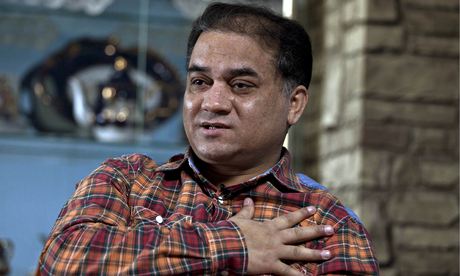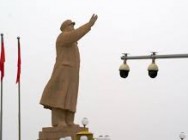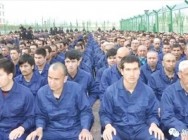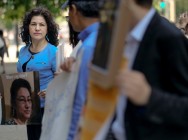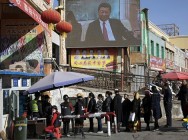Last Minute

- CHINA RELATIONSEAST TURKESTAN PROBLEM AND TURKEY
- FRONTLINE China Undercover
- Elimination of “Uyghur Counter-Revolutionary Officials” in Academic Fields—Exact Quotes Translated from a Mandarin Audio File
- In Push for Trade Deal, Trump Administration Shelves Sanctions Over China’s Crackdown on Uighurs
- Dalai Lama’s 60th Anniversary Symposium: İlshat Hassan speech in English and Chinese
- Uyghur Detainees from Xinjiang ‘Placed in Nearly Every Prison’ in Shandong Province
- Shahrezad Ghayrat, Unrepresented Women
- Uighur Americans Speak Against China’s Internment Camps. Their Relatives Disappear.
- Rozinisa: The true story of the Uyghur girls in the prison
- The Chinese Government Must Account for the Disappearance of the 10+ Million Uyghurs

-

CHINA RELATIONSEAST TURKESTAN PROBLEM AND TURKEY
-

FRONTLINE China Undercover
-

Elimination of “Uyghur Counter-Revolutionary Officials” in Academic Fields—Exact Quotes Translated from a Mandarin Audio File
-

In Push for Trade Deal, Trump Administration Shelves Sanctions Over China’s Crackdown on Uighurs
-

Dalai Lama’s 60th Anniversary Symposium: İlshat Hassan speech in English and Chinese
-

Uyghur Detainees from Xinjiang ‘Placed in Nearly Every Prison’ in Shandong Province
Detained Uyghur Scholar Tohti to Stand Trial in Urumqi For ‘Separatism’
Chinese authorities in the troubled northwestern region of Xinjiang said on Friday that outspoken Uyghur scholar Ilham Tohti will stand trial on separatism charges at a court in the regional capital Urumqi next week, his lawyer said.
Tohti, who has denied all the charges against him as “baseless,” will stand trial in at the Urumqi Intermediate People’s Court on Sept. 17, at 10.30 a.m., his lawyer Li Fangping told RFA after receiving a phone call from court officials.
Li said the defense team has challenged the use of Urumqi as the site for Tohti’s trial, saying that his client’s entire adult life was spent in Beijing and that Urumqi’s courts should have no jurisdiction.
“Tohti and his seven students [who face similar charges] have their household registration in Beijing, and they all lived and worked in Beijing,” Li said.
“Tohti’s website and company was based there, so the jurisdiction for this trial ought to be in Beijing, too,” he said, adding that the defense team has lodged an application for the trial to be held at Beijing’s No. 1 Intermediate People’s Court.
Human rights groups have said that Beijing wanted to punish Tohti, a long-time advocate of Uyghur rights and outspoken critic of Chinese policies in the Xinjiang region, as part of its broad strategy to drown the voices of the mostly Muslim Uyghurs, who call Xinjiang their homeland.
Tohti’s wife Guzulnur, who remains in Beijing with the couple’s two sons, said she was disheartened by the news of the impending trial.
“I have been feeling very sad in the past two or three days, because I knew the trial was imminent,” Guzulnur told RFA on Friday. “It’s hard for me to say anything.”
She said she had continued to go to work and take care of her children as normal, avoiding the security guards posted outside her apartment building.
“I’ll go by myself to Urumqi for the trial,” Guzulnur said, adding that Tohti’s sons know nothing of his detention or trial.
Leg irons, manacles

Beijing-based Tibetan writer Tsering Woeser said Guzulnur is in a highly anxious state after hearing that her husband is wearing leg irons and manacles in the detention center.
“She is in a lot of emotional pain … She can’t eat or sleep,” Woeser wrote on her Twitter account. “She keeps weeping when she’s talking.”
“She says that, no matter what happens, she’ll do her best to raise her two little boys.”
Meanwhile, authorities in the southwestern province of Yunnan on Friday sentenced three ethnic minority Uyghurs to death and another to life imprisonment in connection with a March 1 knife attack in Kunming railway station that left 31 people dead, official media reported.
Iskandar Ehet, Turgun Tohtunyaz, and Hasayn Muhammad were sentenced to death for “leading a terrorist organization” and “intentional homicide,” state broadcaster CCTV reported on Friday.
The fourth defendant, Patigul Tohti, received a life sentence on the same charges, because she was pregnant at the time of her detention.
Patigul Tohti was shot by police at the station, while the other three were arrested a few days before the attack while trying to flee the country, court officials told state media.
Footage of the four suspects aired on CCTV showed three men and four women in different color overalls sitting in the Kunming court, in front of a row of uniformed police.
‘Premeditated attack’
The ruling Chinese Communist Party has long claimed the raid on the railway station of southwestern Yunnan province’s capital Kunming was a premeditated terrorist attack.
Eight assailants—four of whom were shot dead, with the others captured by police—killed 31 people and injured 141 as they slashed indiscriminately at people queuing to buy tickets at the busy railway terminal, Chinese state media had reported.
But Uyghur sources in the Yunnan capital said at the time that the eight had fled there to escape police in Xinjiang, and had likely acted in desperation after the Chinese authorities discovered their plans to flee to neighboring Laos.
Dilxat Raxit, Munich-based spokesman for the World Uyghur Congress (WUC) exile group, said the defendants hadn’t received a fair trial.
“This entire trial was a question of going through the motions,” he said. “They are using this high-powered propaganda method as a way of placating Han Chinese and avoiding the issue that [these people] chose to flee the unbearable oppression meted out to Uyghurs.”
‘Extremist thinking’
While he didn’t deny the four had taken part in the attack, Raxit said the killings were far from an act of premeditated terrorism.
“[They did this] when it became clear they couldn’t escape overseas, out of desperation, and under the threat of detention,” Raxit said.
However, the court found the attackers had been “influenced by extremist religious thinking,” alleging they had planned the attack beginning the previous December.
It said the attacks, which official media have dubbed “China’s 9/11,” were planned in a hair salon in Yunnan’s Gejiu city, based on materials downloaded from jihadi websites.
The court said five others had helped the group, and they would be “dealt with separately.”
“Today’s trial clearly shows the resolute attitude and staunch determination of the Chinese government to protect the life, property, security, and joint interests of all ethnicities, and severely strike at violent terrorism crimes,” the Kunming Intermediate People’s Court said in a statement on Friday.
Upsurge in violence
The Xinjiang region, which is home to millions of Turkic-speaking Uyghurs, has seen an upsurge in violence that has left hundreds dead since 2012, and which China has blamed on terrorists and Islamist insurgents seeking to establish an independent state.
But rights groups accuse the Chinese authorities of heavy-handed rule in Xinjiang, including violent police raids on Uyghur households, restrictions on Islamic practices, and curbs on the culture and language of the Uyghur people.
Chinese president Xi Jinping announced a harsh, one-year antiterrorist campaign in May, following a bombing in the regional capital Urumqi that killed 31 people and injured 90.
In the latest serious violence, Chinese state media said, 96 people were killed in July 28 riots which erupted after a “gang” of Uyghurs attacked a police station and government offices in Kashgar prefecture’s Yarkand (in Chinese, Shache) county.
The authorities had reacted with “a resolute crackdown to eradicate terrorists,” state media said.
But exiled Uyghur leader Rebiya Kadeer accused the authorities of covering up a massacre of up to 2,000 Uyghur civilians.
Reported by Qiao Long for RFA’s Mandarin Service, and by Hai Nan for the Cantonese Service. Translated and written in English by Luisetta Mudie.
http://www.rfa.org/english/news/uyghur/trial-09122014132025.html
RELATED NEWS






